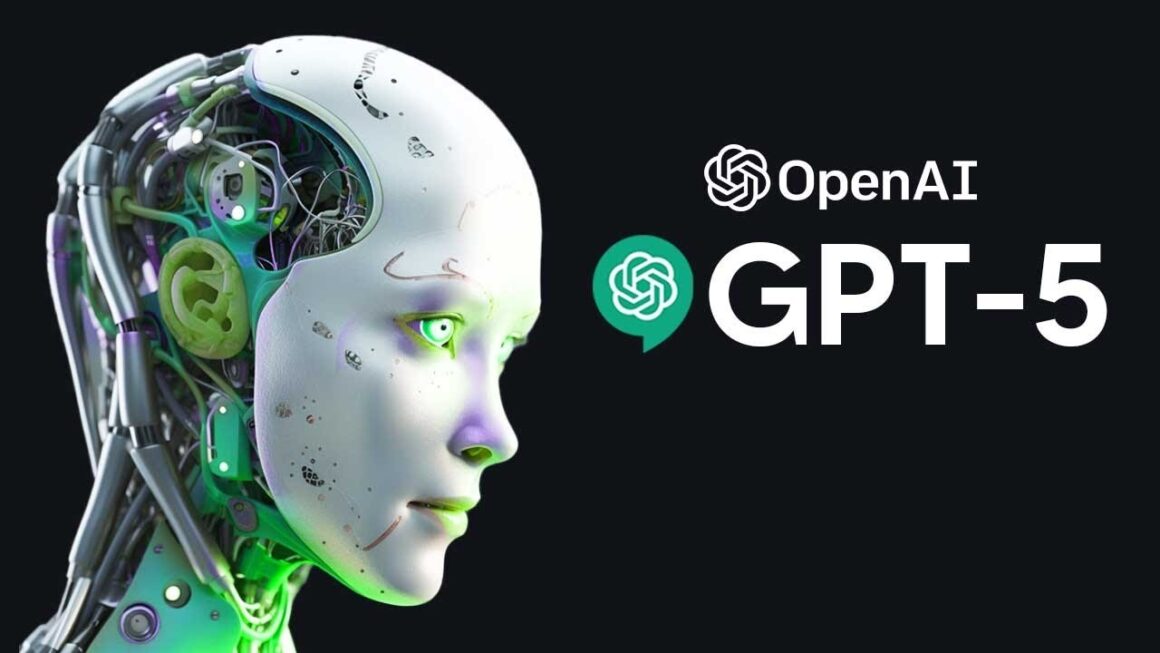The evolution of blockchain technology continues to push the boundaries of decentralized finance (DeFi), decentralized applications (dApps), and smart contracts. With the rise of platforms like Ethereum, developers and businesses alike are increasingly drawn to the possibilities offered by smart contracts to automate transactions and processes without requiring intermediaries. As Web3 gains more traction, companies are exploring innovative solutions to streamline their blockchain-based applications. One such development is the integration of advanced AI models like GPT-5 into Web3 technologies.
In this article, we will delve into how AI can revolutionize smart contract development, with a focus on how GPT-5 can enable the creation of smart contracts without the need for complex coding. Additionally, we will explore the role of smart contract development company and services in enabling businesses to leverage blockchain technology effectively.
Understanding Smart Contracts and Their Role in Blockchain
Before diving into the potential of AI-driven smart contract development, it is essential to understand what smart contracts are and how they function within the context of blockchain technology.
What are Smart Contracts?
Smart contracts are self-executing contracts with the terms of the agreement directly written into code. They are designed to automatically execute actions when predefined conditions are met, eliminating the need for intermediaries. These contracts run on blockchain networks like Ethereum, ensuring that once deployed, they are immutable and tamper-proof.
Smart contracts have gained significant traction due to their ability to automate complex processes in areas like finance, insurance, supply chain management, and legal agreements. Their potential for decentralization and cost reduction has made them indispensable tools for businesses seeking to optimize operations through blockchain technology.
Benefits of Smart Contracts
Smart contracts offer several benefits, including:
- Security: Since they are built on blockchain, they are protected from fraud and tampering.
- Efficiency: Smart contracts execute automatically when conditions are met, reducing the time and effort required for manual intervention.
- Transparency: The terms of the contract are visible to all participants on the blockchain, enhancing trust.
- Cost Savings: By removing intermediaries, smart contracts can significantly reduce transaction costs.
Despite these advantages, developing smart contracts traditionally requires a solid understanding of blockchain programming languages like Solidity, which can be challenging for non-developers.
The Emergence of GPT-5 in Web3: Transforming Smart Contract Development
As Web3 continues to grow, the demand for user-friendly development tools has increased. One of the most significant innovations in this regard is the integration of advanced artificial intelligence models like GPT-5 into the smart contract development process.
GPT-5, a powerful AI language model, has the potential to revolutionize how businesses and developers approach blockchain technology. With its advanced natural language processing (NLP) capabilities, GPT-5 can simplify the creation of smart contracts, enabling non-developers and business professionals to generate complex contracts without writing a single line of code.
What is GPT-5?
GPT-5 is an advanced AI model developed by OpenAI that can understand and generate human-like text based on a given prompt. It is trained on vast amounts of text data and can assist with a wide range of tasks, from generating code to composing emails, writing essays, and even helping with creative tasks. Unlike previous models, GPT-5 has significantly improved capabilities, enabling it to understand and generate more complex responses and tasks, including technical ones like programming and smart contract creation.
GPT-5 and Smart Contract Development
The introduction of GPT-5 to smart contract development is a game-changer. By leveraging the power of this AI, developers can now generate smart contracts by simply providing natural language descriptions of the contract terms and conditions. GPT-5 can then translate these descriptions into the appropriate code, eliminating the need for users to have deep knowledge of blockchain development languages such as Solidity or Rust.
This simplification of smart contract development is particularly beneficial for startups and businesses that may not have a dedicated development team or technical expertise. Using GPT-5, these organizations can draft, deploy, and manage smart contracts without the traditional barriers to entry.
The Role of Smart Contract Development Companies
While GPT-5 promises to make smart contract creation more accessible, there is still a significant need for professional expertise when it comes to deploying and managing smart contracts in a production environment. Smart contract development companies play a crucial role in helping businesses navigate the complexities of blockchain technology.
How Smart Contract Development Companies Help
Smart contract development companies specialize in building, deploying, and maintaining smart contracts on various blockchain platforms. They provide a range of services, including:
- Custom Smart Contract Development: These companies work with clients to design bespoke smart contracts tailored to their specific business needs. Whether it’s automating internal processes, managing token distribution, or facilitating decentralized finance protocols, development companies can help businesses create robust, secure contracts.
- Security Audits: Security is a critical concern when dealing with blockchain applications. Smart contract vulnerabilities can result in significant financial losses, so development companies typically offer comprehensive auditing services to ensure that contracts are secure, bug-free, and resistant to attacks.
- Optimization: Efficiency is key in blockchain applications. Smart contract developers analyze and optimize contracts to ensure they are cost-effective and operate smoothly, minimizing transaction fees and ensuring scalability.
- Integration Services: Smart contracts need to integrate with existing systems and other blockchain networks. Development companies provide integration services, ensuring seamless communication between various platforms and systems.
- Consultation and Strategy: For businesses new to blockchain, smart contract development companies offer consultation services. These companies help organizations understand the value of blockchain technology, how smart contracts can enhance their business processes, and how to implement blockchain solutions effectively.
Choosing the Right Smart Contract Development Service
When selecting a smart contract development company, businesses must consider several factors, including:
- Experience and Expertise: Look for companies with a proven track record in developing smart contracts on the blockchain platform of your choice.
- Security and Audits: Ensure the company follows best practices for security and offers smart contract audits to protect your business.
- Customization Capabilities: Ensure the company can tailor smart contracts to meet your unique business needs.
- Support and Maintenance: Ongoing support and maintenance are crucial for long-term success. Make sure the company offers post-deployment services.
How GPT-5 Can Assist Smart Contract Development Companies
For smart contract development companies, GPT-5 can enhance their workflow by streamlining the initial stages of development. With AI assistance, developers can quickly generate boilerplate code, validate contract conditions, and ensure compliance with industry standards. This reduces development time and costs, allowing firms to focus on more complex tasks like security audits, optimization, and custom features.
GPT-5’s Role in Security and Testing
Security is one of the most significant challenges in smart contract development. GPT-5 can assist in identifying vulnerabilities by analyzing code and flagging potential issues, thereby enhancing the overall security of the contract. Additionally, GPT-5 can be used to generate test cases to ensure that smart contracts perform as expected in different scenarios.
GPT-5 for Documentation
Writing comprehensive and clear documentation for smart contracts is essential for transparency and future modifications. GPT-5 can automate the documentation process, providing developers with ready-to-use descriptions of the contract’s functionality and terms, making it easier for clients to understand the contract and for future developers to maintain it.
The Future of GPT-5 and Smart Contract Development

As GPT-5 and similar AI models continue to evolve, the possibilities for smart contract development will expand. The integration of AI could enable fully autonomous blockchain systems, where contracts are not only written automatically but also optimized and executed based on evolving business conditions. In the future, businesses may no longer need to rely on human developers for routine contract creation, shifting the focus toward more strategic, complex tasks that require human judgment and creativity.
The Democratization of Blockchain Technology
One of the most significant impacts of GPT-5 on smart contract development is the democratization of blockchain technology. By eliminating the need for specialized coding knowledge, AI-powered platforms can empower businesses of all sizes to leverage the full potential of blockchain and smart contracts. As this technology becomes more accessible, we can expect to see a broader adoption of blockchain in industries ranging from finance and healthcare to real estate and logistics.
Conclusion
The integration of GPT-5 into the smart contract development process represents a significant leap forward in the accessibility and efficiency of blockchain technology. By empowering businesses to create smart contracts without the need for extensive coding knowledge, AI has the potential to democratize blockchain development. However,smart contract development companies will continue to play a critical role in ensuring the security, optimization, and customization of blockchain solutions for businesses. As Web3 continues to evolve, AI tools like GPT-5 will play an increasingly important role in shaping the future of decentralized technologies.
Frequently Asked Questions (FAQs)
1. What is a smart contract?
A smart contract is a self-executing contract with the terms of the agreement written directly into code. It operates on a blockchain and automatically enforces the contract’s conditions without the need for intermediaries.
2. How can GPT-5 help in smart contract development?
GPT-5 can simplify the process of writing smart contracts by translating natural language descriptions into code. This reduces the need for developers to write complex code manually and makes smart contract creation accessible to non-developers.
3. Can businesses create smart contracts without coding knowledge?
Yes, with AI tools like GPT-5, businesses can create smart contracts without having in-depth coding knowledge. GPT-5 can generate code based on natural language inputs, making it easier for non-technical users to participate in blockchain development.
4. Why are security audits important for smart contracts?
Smart contracts are vulnerable to bugs and vulnerabilities, which can lead to financial losses or security breaches. Security audits help identify potential weaknesses in the code, ensuring that contracts are safe to deploy on the blockchain.
5. Can GPT-5 automate the entire smart contract development process?
While GPT-5 can automate many aspects of smart contract development, including writing code and generating documentation, human expertise is still required for tasks such as security auditing, optimization, and ensuring compliance with industry standards.

